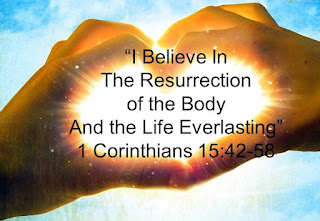The LORD possessed me at the beginning of his
work, the first of his acts of old. Ages ago I was set up, at the first, before
the beginning of the earth. When there were no depths I was brought forth, when
there were no springs abounding with water. Before the mountains had been
shaped, before the hills, I was brought forth, before he had made the earth
with its fields, or the first of the dust of the world. When he established the
heavens, I was there; when he drew a circle on the face of the deep, when he made
firm the skies above, when he established the fountains of the deep, when he assigned
to the sea its limit, so that the waters might not transgress his command, when
he marked out the foundations of the earth, then I was beside him, like a
master workman, and I was daily his delight, rejoicing before him always, rejoicing
in his inhabited world and delighting in the children of man. (Proverbs 8:22-31
ESV).
Historically Moses, directed by God, is
understood to be the writer of the first five books of the Bible. Growing up as
part of the royal family in Egypt, Moses (a Hebrew child adopted by the king’s
daughter—Exodus 2) would have been taught many myths about the origin of the
world. An old Mesopotamian myth, for example, held that Marduk, a warrior god,
fought against Tiamat, a monster ruling the chaotic sea. Marduk defeated Tiamat
and brought order out of chaos.
Now, let’s look at Genesis 1 again. We see powerful waters, but they are not described as a god or a monster; they are simply a part of the world God is creating. God tells the waters where they can go and where they cannot go. (cf. Proverbs 8:12-31.) Moses shows that the true God is in control of all things. In myths about creation there is always uncertainty about whether a people’s gods can hold back the forces of chaos. The ancient Egyptians, for example, believed that their sun god Ra had to descend into the underworld every night to defeat the great serpent Apophis, or else the ordered world would be destroyed.
But in the Genesis story, God creates
and makes peace not through battle but with a word. No other force or would-be
god is there; creation has only one true Lord. That God is Jesus, our redeemer
who loves us and gives us grace and love forever!






















